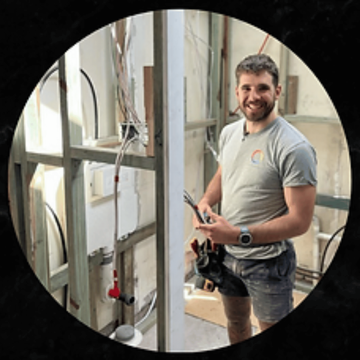Get in Touch
Our work is undertaken in accordance with current best practice methods and is fully guaranteed and completed in line with latest AS/NZS 3000:2007 electrical standards.
Our electricians are fully licensed, insured and up to date with the latest standards and regulations.
Check out The Latest Trends in Air Conditioning Technology
The world of HVAC (Heating, Ventilation, and Air Conditioning) is evolving rapidly, with new technologies and innovations aiming to improve efficiency, reduce environmental impact, and enhance user convenience and comfort.
Here's a look at some of the latest trends in air conditioning technology and what the future may hold for cooling systems.
Smart Thermostats and IoT Integration
One of the most significant advancements in air conditioning technology is the development of smart thermostats and the integration of HVAC systems with the Internet of Things (IoT). Smart thermostats learn from your habits and adjust the temperature automatically to improve comfort and efficiency. They can be controlled remotely via smartphones, allowing users to adjust settings on the go or monitor energy usage in real-time. IoT integration extends this control, enabling air conditioning systems to communicate with other smart devices in the home for a fully integrated, smart home experience.
Eco-Friendly Refrigerants
As environmental concerns continue to grow, the HVAC industry is shifting towards more eco-friendly refrigerants. Older refrigerants, such as R-22, have been phased out due to their high Global Warming Potential (GWP) and Ozone Depletion Potential (ODP). Newer refrigerants, such as R-32, R-410A, and R-134a, offer lower environmental impact without sacrificing efficiency. The trend towards eco-friendly refrigerants is expected to continue, with ongoing research into alternatives that offer even lower GWP and no ODP.
High-Efficiency Models
The push for energy efficiency is driving the development of high-efficiency air conditioning models. These systems, equipped with advanced compressors, fan motors, and heat exchange technologies, provide the same level of cooling while consuming less energy. High-efficiency models often come with higher SEER (Seasonal Energy Efficiency Ratio) ratings, indicating their superior performance. Investing in these models can lead to significant savings on energy bills and reduce the environmental footprint of air conditioning.
Variable Refrigerant Flow (VRF) Systems
VRF systems represent a significant innovation in HVAC technology, offering enhanced efficiency, flexibility, and control. These systems use refrigerant as both the cooling and heating medium and precisely control the amount of refrigerant flowing to each zone or room. This allows for individual temperature control in different areas, making VRF systems ideal for large buildings or complex layouts. The efficiency and scalability of VRF systems make them a growing trend in both commercial and high-end residential markets.
Geothermal Cooling Systems
Geothermal cooling is an eco-friendly alternative to traditional air conditioners, using the earth's stable underground temperature to cool and heat homes. While the initial installation cost can be high, the long-term energy savings and minimal environmental impact make geothermal systems an attractive option for sustainable cooling. As technology improves and installation costs decrease, geothermal cooling is expected to become more accessible to a broader range of homeowners.
Predictive Maintenance and AI Diagnostics
Advancements in artificial intelligence (AI) and machine learning are paving the way for predictive maintenance in air conditioning systems. By analyzing data from the system, AI can predict potential issues before they become major problems, scheduling maintenance or alerting homeowners to the need for repairs. This not only prevents unexpected breakdowns but also extends the lifespan of the system and ensures it operates at peak efficiency.
Looking to the Future: Innovations on the Horizon
The future of air conditioning technology promises even more exciting developments. Innovations such as solar-powered cooling, ice-powered air conditioners, and advancements in non-vapor compression technology are being researched and developed. These innovations aim to reduce reliance on traditional energy sources, lower operational costs, and provide sustainable cooling solutions.
The latest trends in air conditioning technology reflect a move towards greater efficiency, environmental sustainability, and user-friendly operation. As technology continues to evolve, we can expect future air conditioning systems to be even more innovative, offering enhanced performance and less environmental impact. Staying informed about these trends can help homeowners and businesses make educated decisions when upgrading or installing new HVAC systems, ensuring they benefit from the latest advancements in cooling technology.



